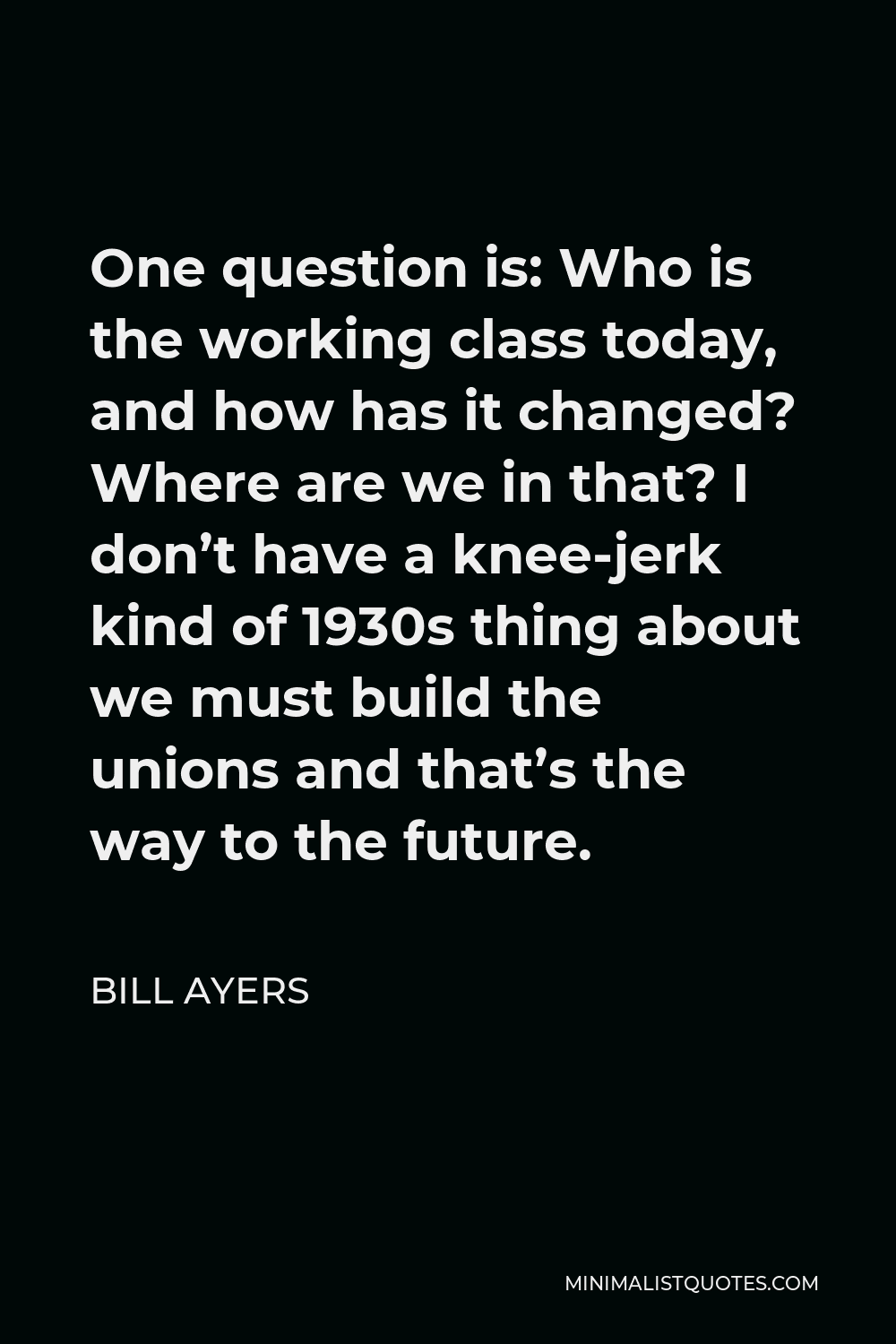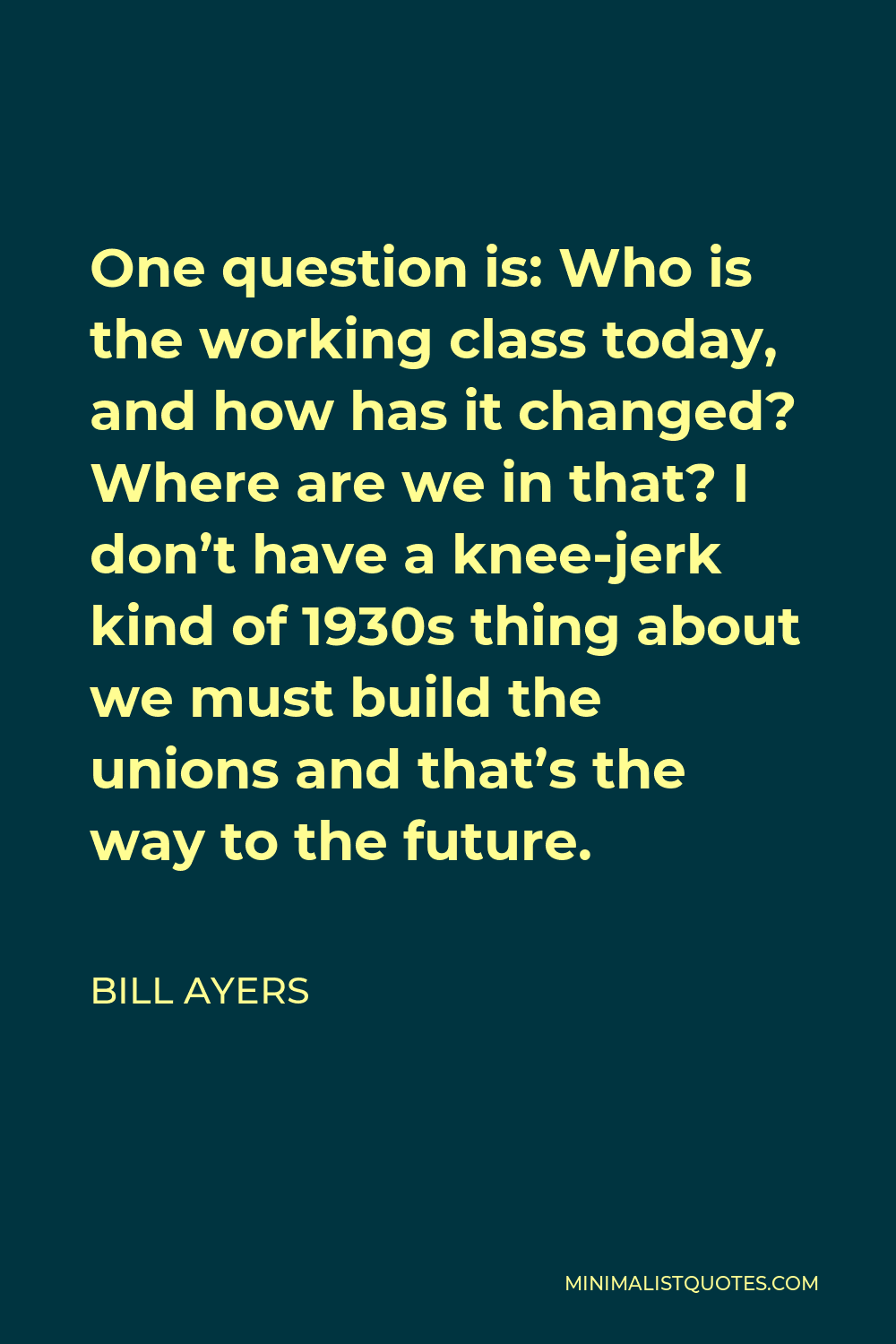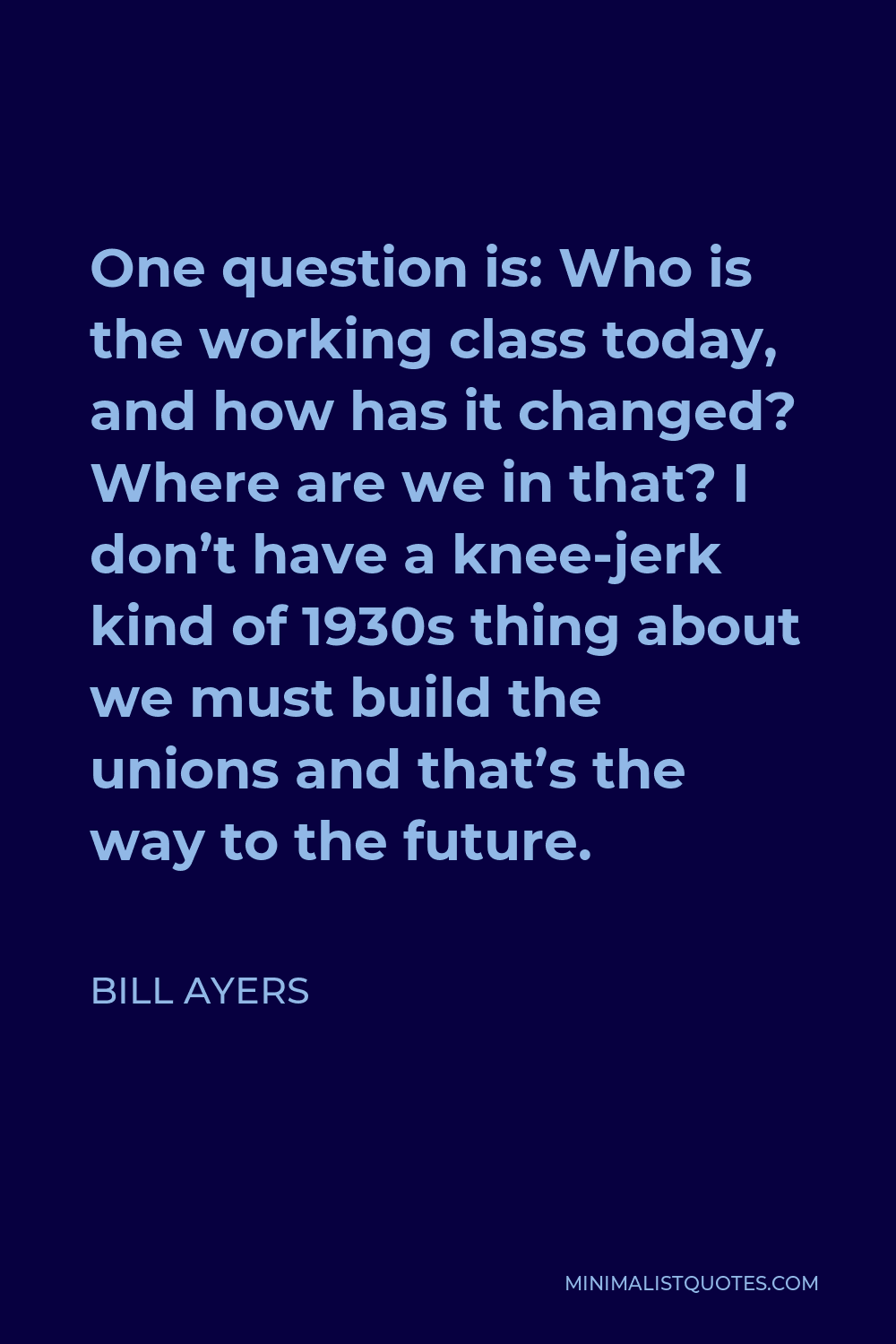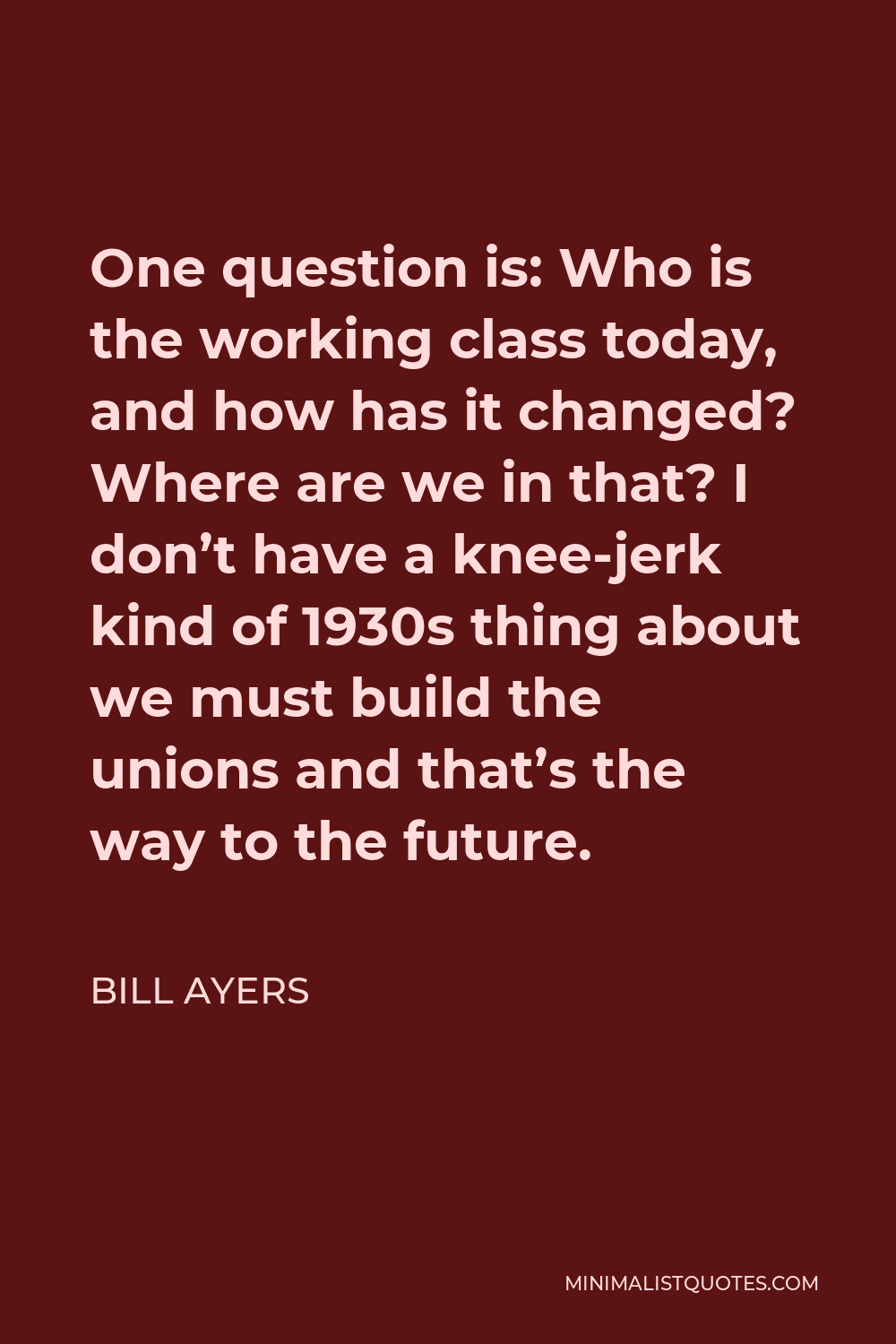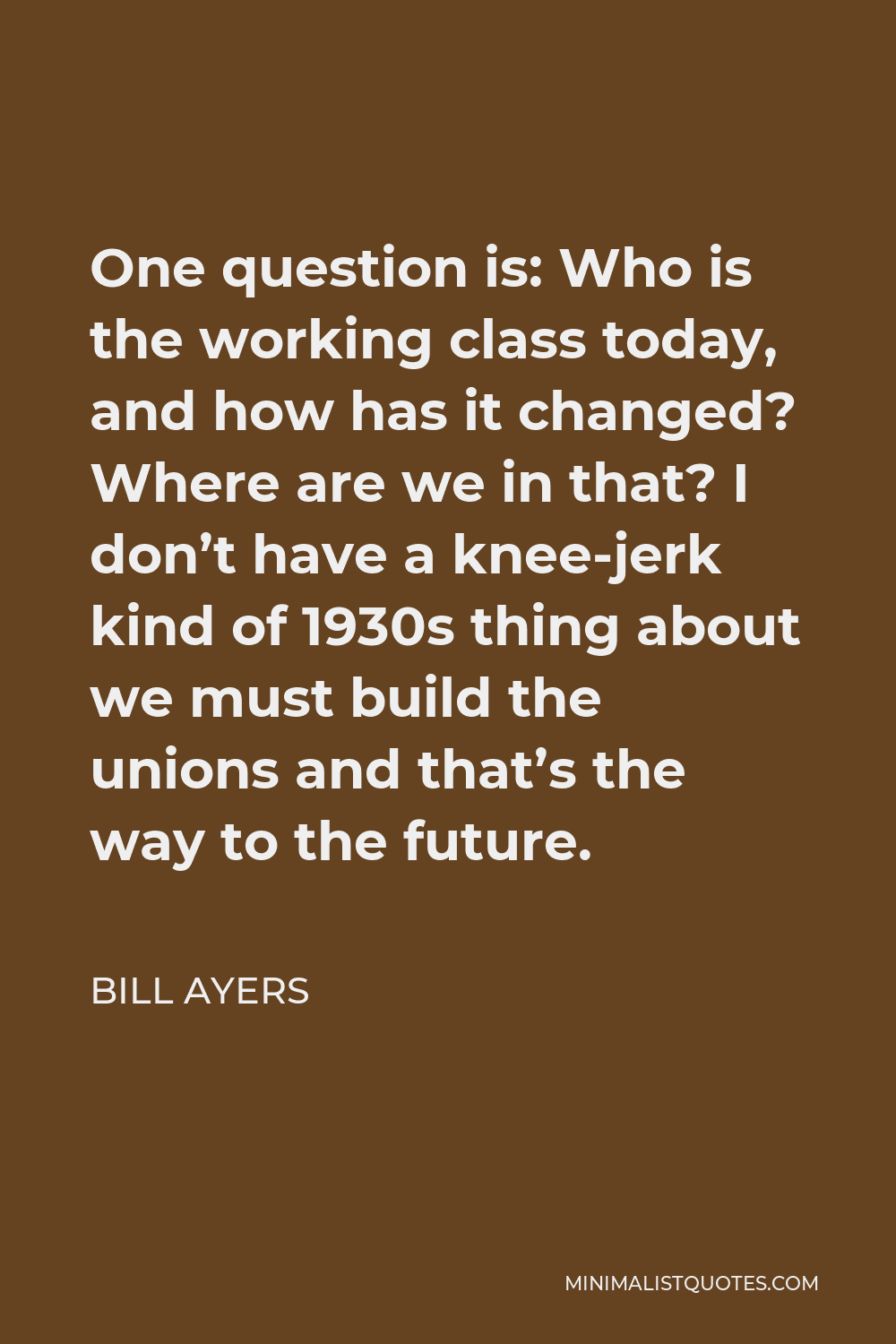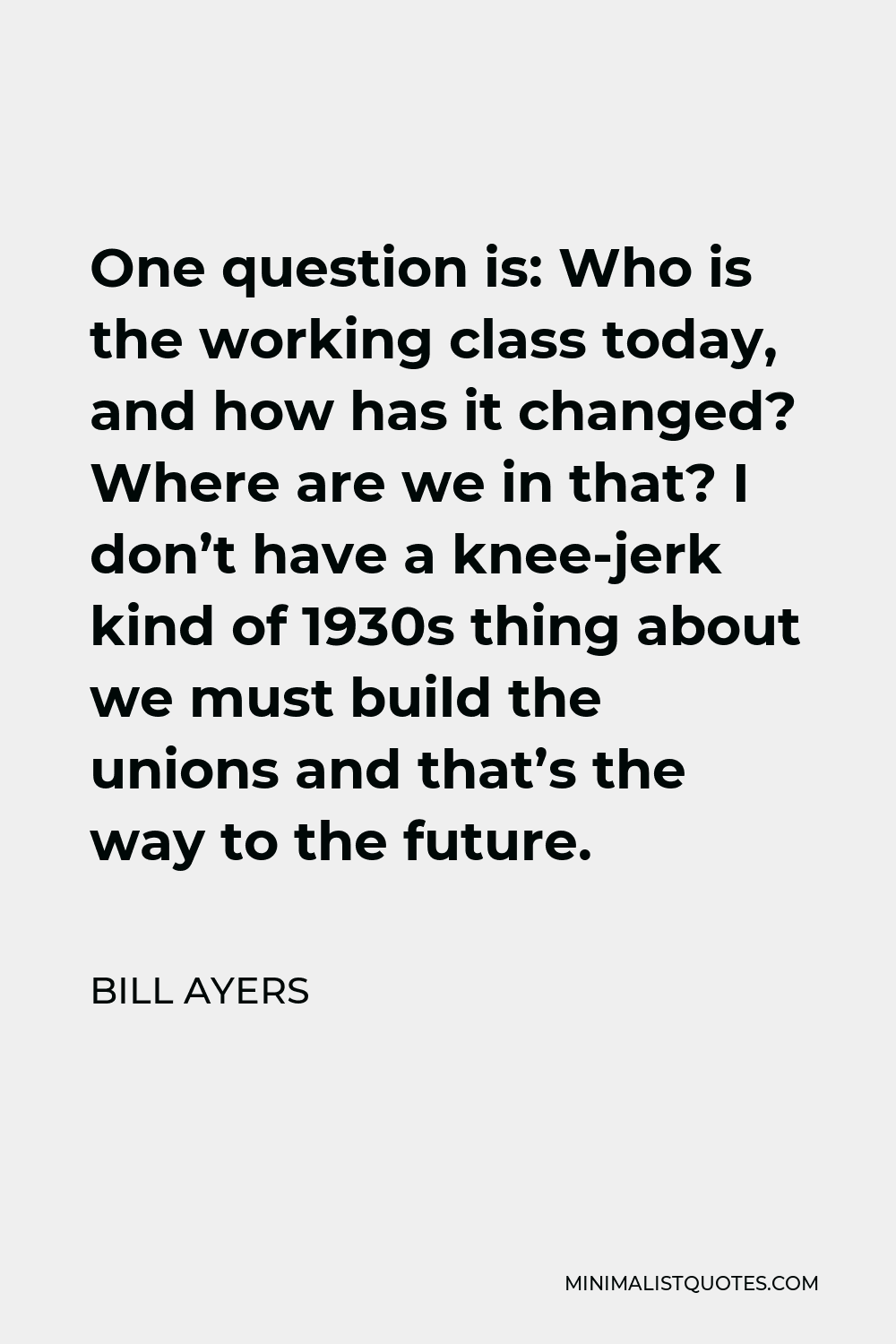It felt to me like I was living my life in a way that didn’t make mockery of my values. That’s what I intended to do. So, that became a very radicalizing proposition for me.
BILL AYERSOne question is: Who is the working class today, and how has it changed? Where are we in that? I don’t have a knee-jerk kind of 1930s thing about we must build the unions and that’s the way to the future.
More Bill Ayers Quotes
-





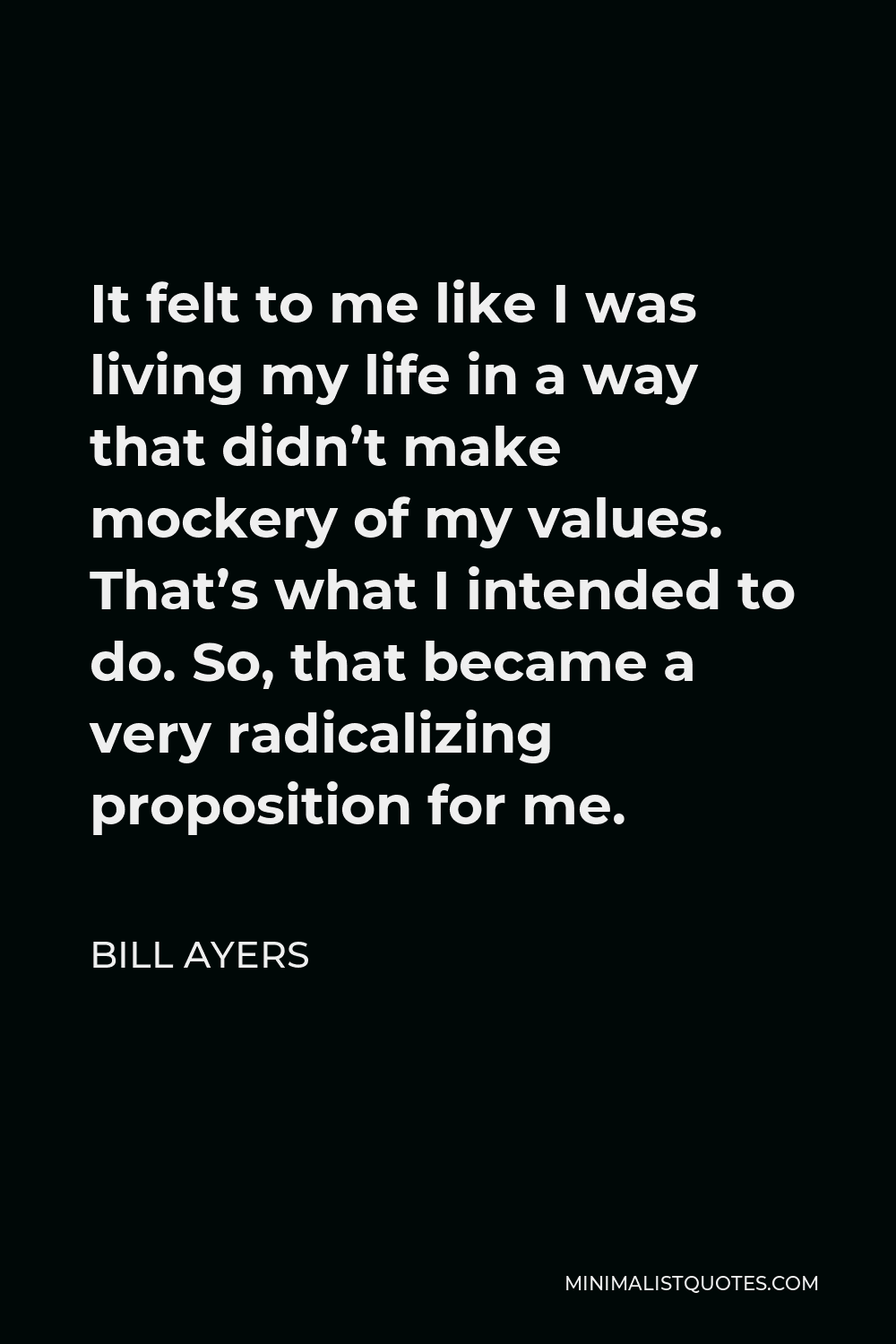
-





![Bill Ayers Quote - I’m wary of government. Part of [the Tea Party] impulse is to dislike and be worried about the rich. I’m that way too. So I don’t find them to be as atrocious as most people do, as your liberals do. I’m not a liberal.](https://minimalistquotes.com/images/im-wary-of-government-part-of-the-tea-party-impuls.jpg)
I’m wary of government. Part of [the Tea Party] impulse is to dislike and be worried about the rich. I’m that way too. So I don’t find them to be as atrocious as most people do, as your liberals do. I’m not a liberal.
BILL AYERS -





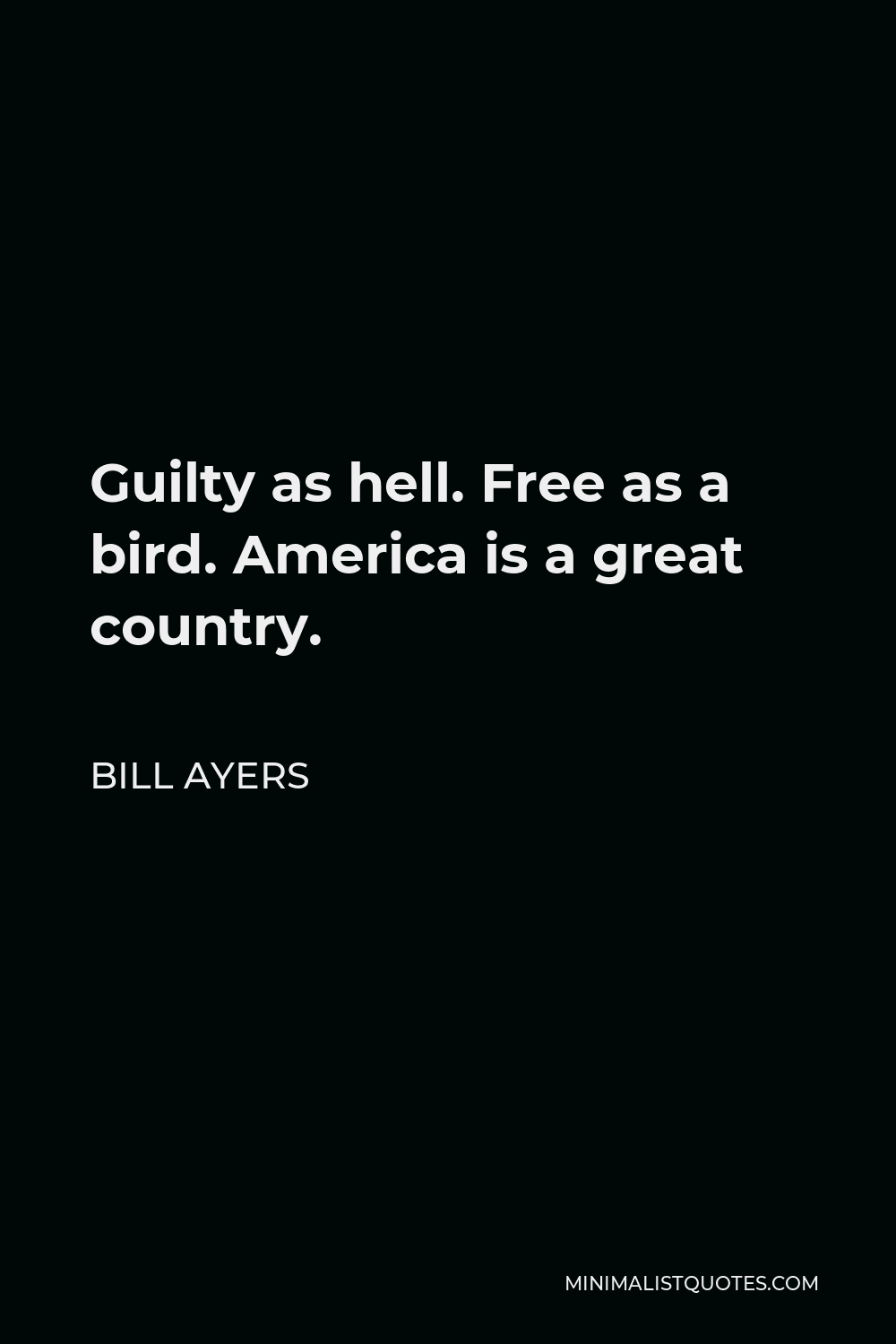
Guilty as hell. Free as a bird. America is a great country.
BILL AYERS -





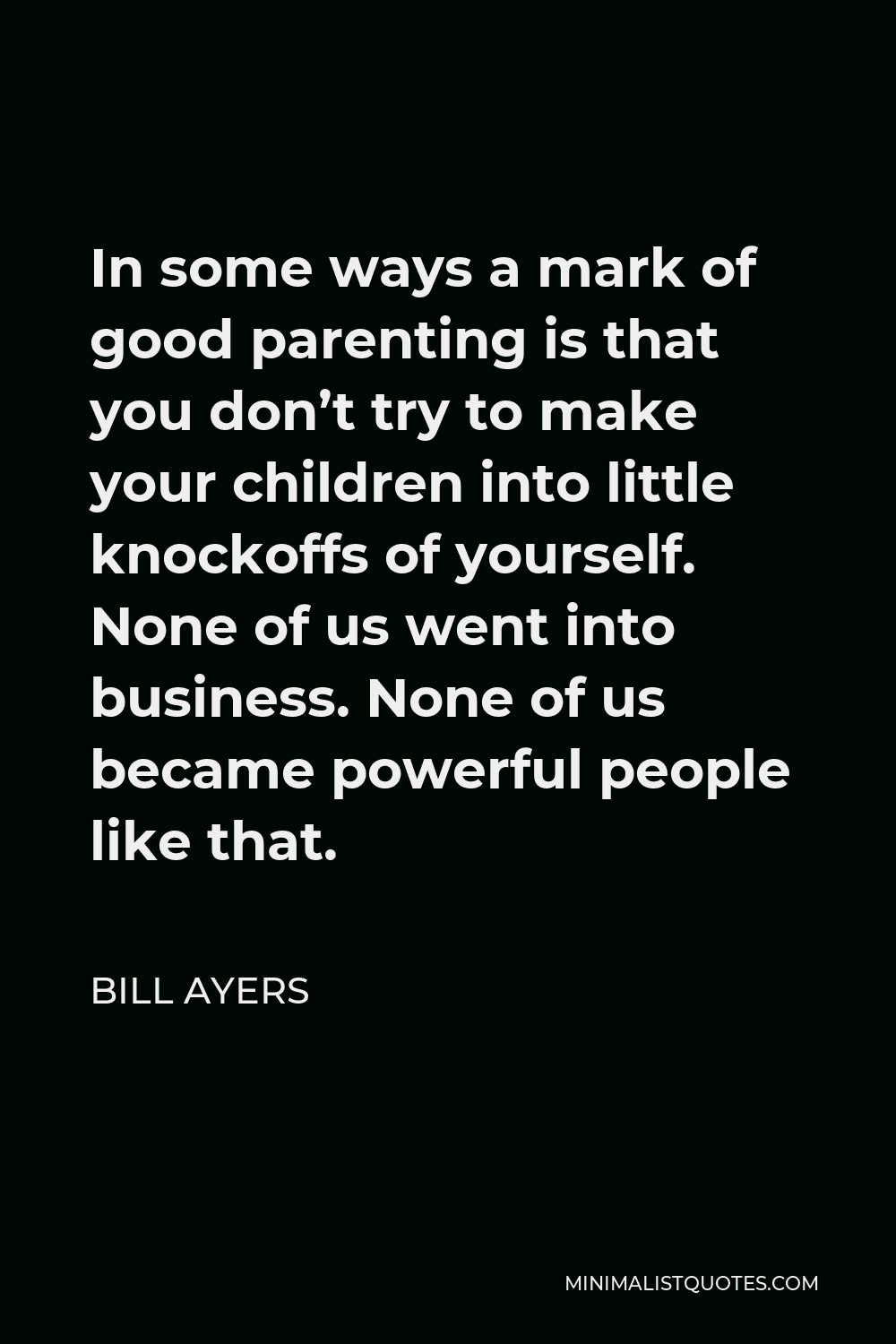
In some ways a mark of good parenting is that you don’t try to make your children into little knockoffs of yourself. None of us went into business. None of us became powerful people like that.
BILL AYERS -





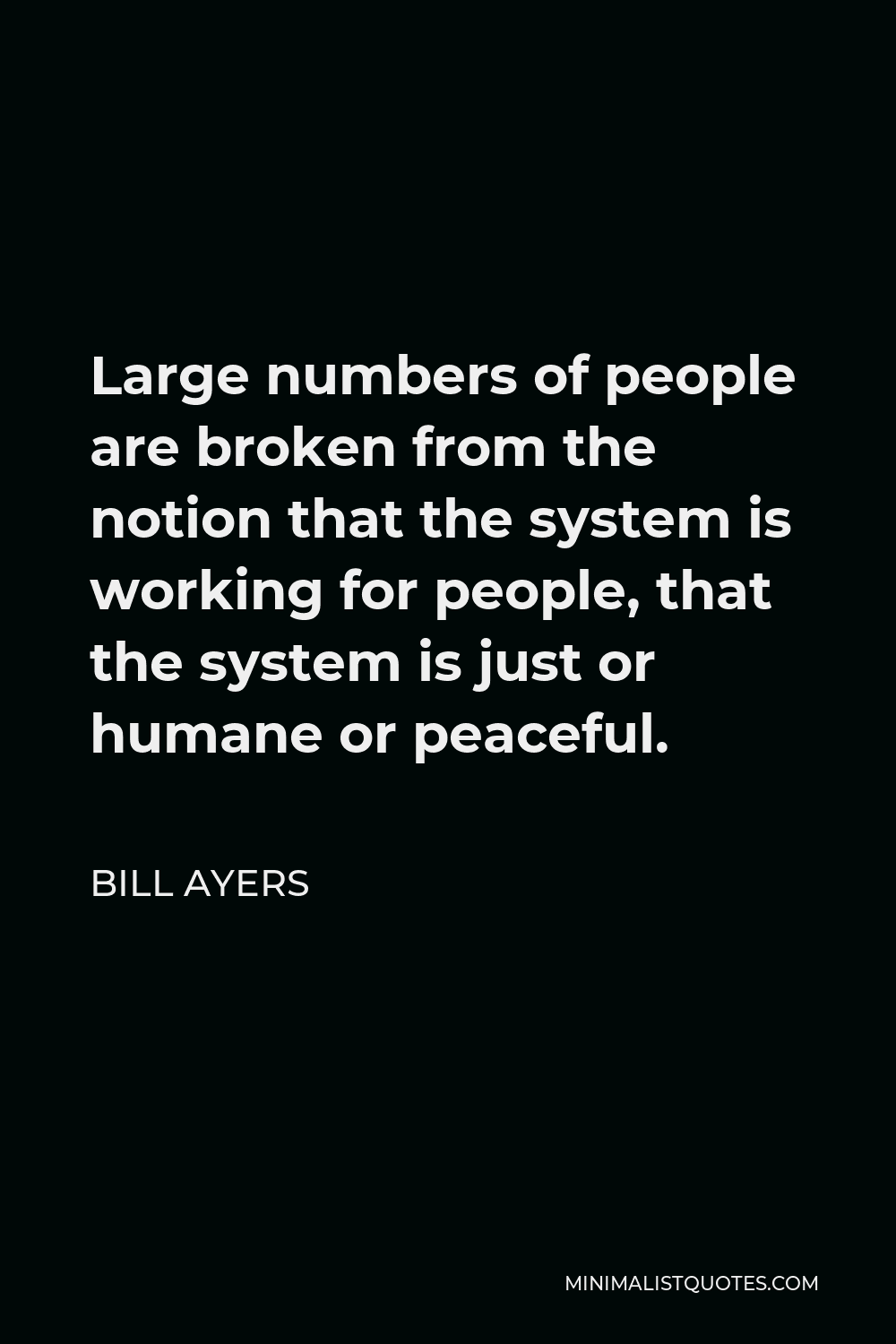
Large numbers of people are broken from the notion that the system is working for people, that the system is just or humane or peaceful.
BILL AYERS -





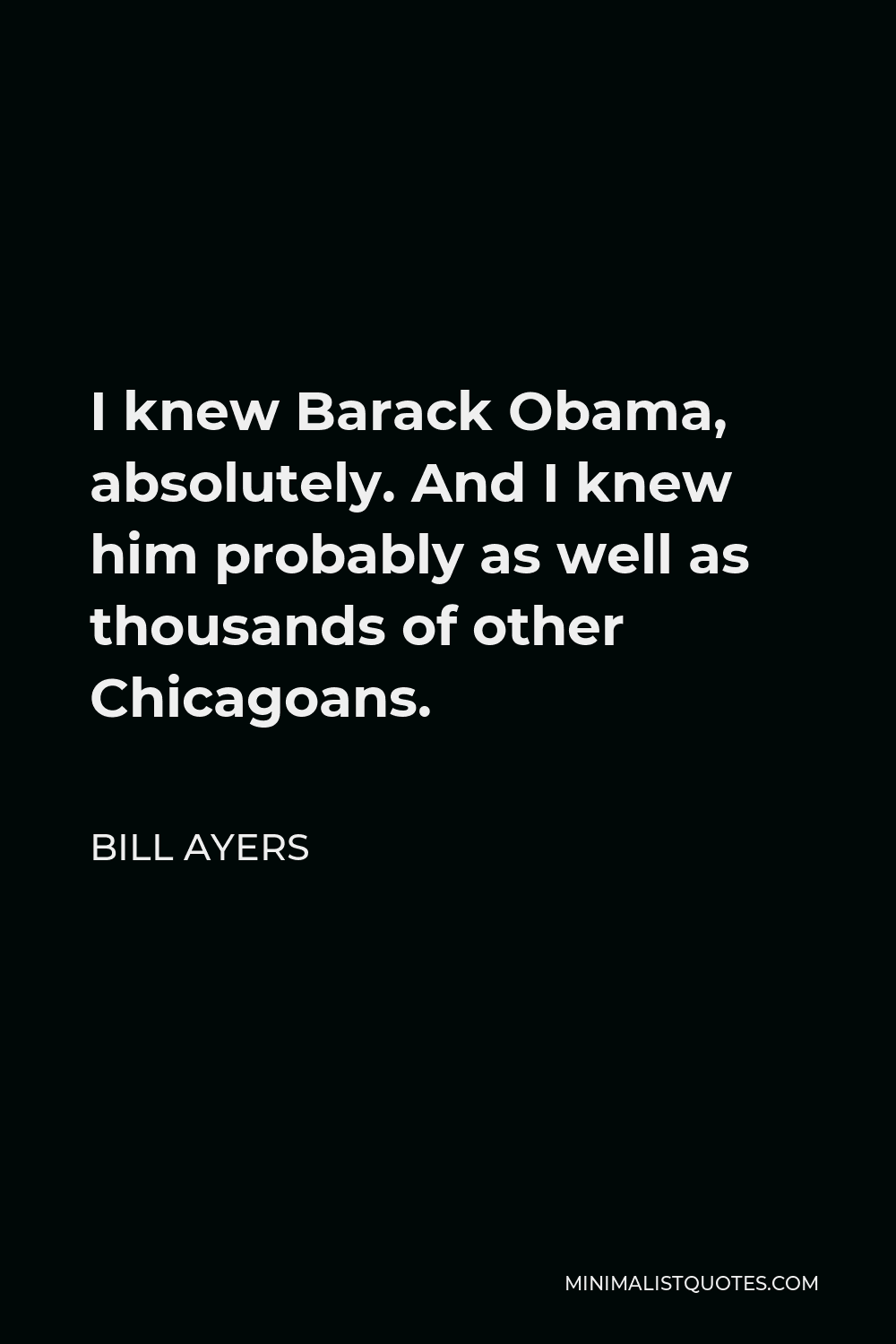
I knew Barack Obama, absolutely. And I knew him probably as well as thousands of other Chicagoans.
BILL AYERS -





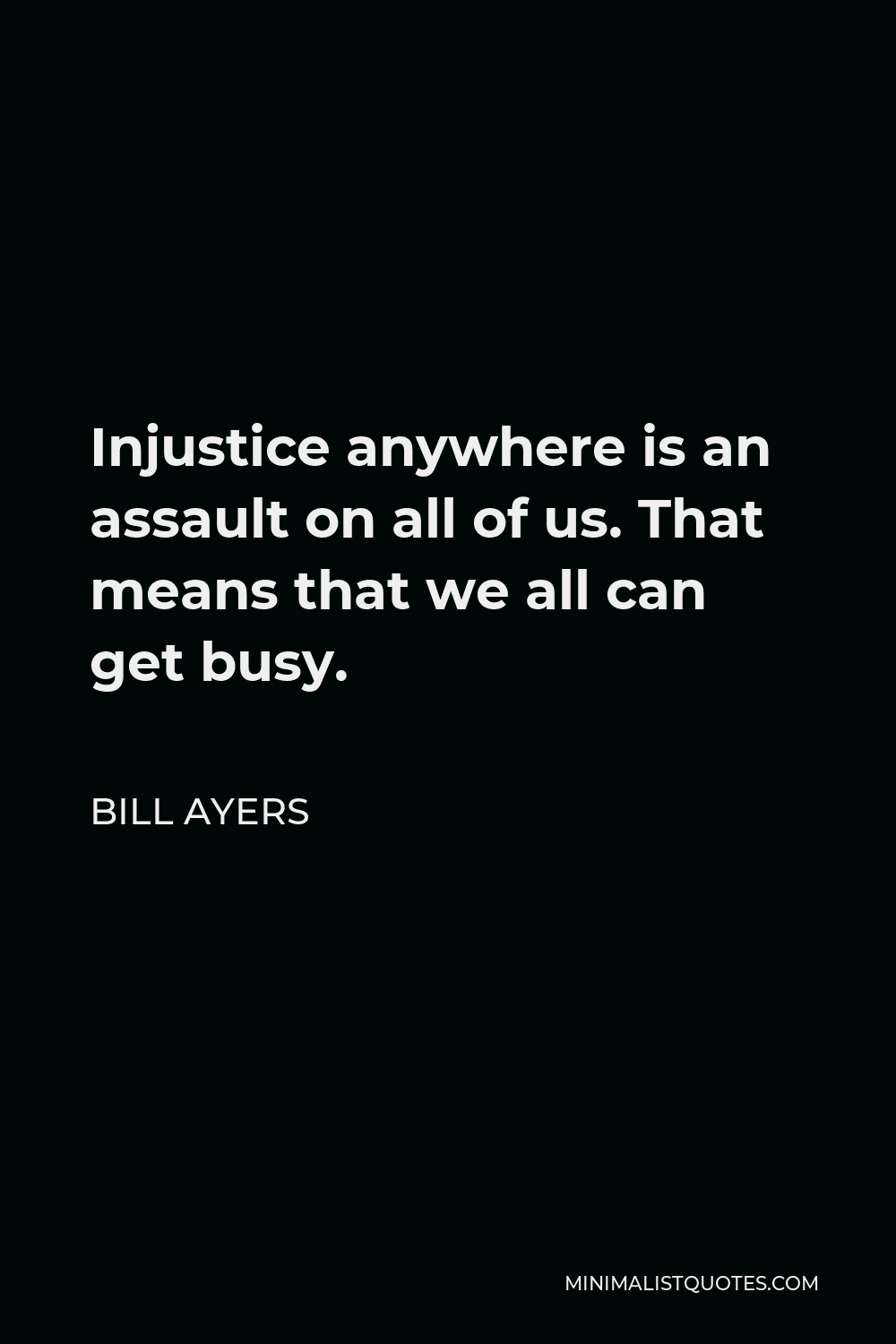
Injustice anywhere is an assault on all of us. That means that we all can get busy.
BILL AYERS -





![Bill Ayers Quote - Well, first of all I think that we have to be careful with terms like the working class, obviously. When [Karl] Marx wrote about the working class he was writing about something much more bounded than we’re talking about.](https://minimalistquotes.com/wp-content/uploads/2022/12/well-first-of-all-i-think-that-we-have-to-be-caref-683x1024.jpg)

Well, first of all I think that we have to be careful with terms like the working class, obviously. When [Karl] Marx wrote about the working class he was writing about something much more bounded than we’re talking about.
BILL AYERS -





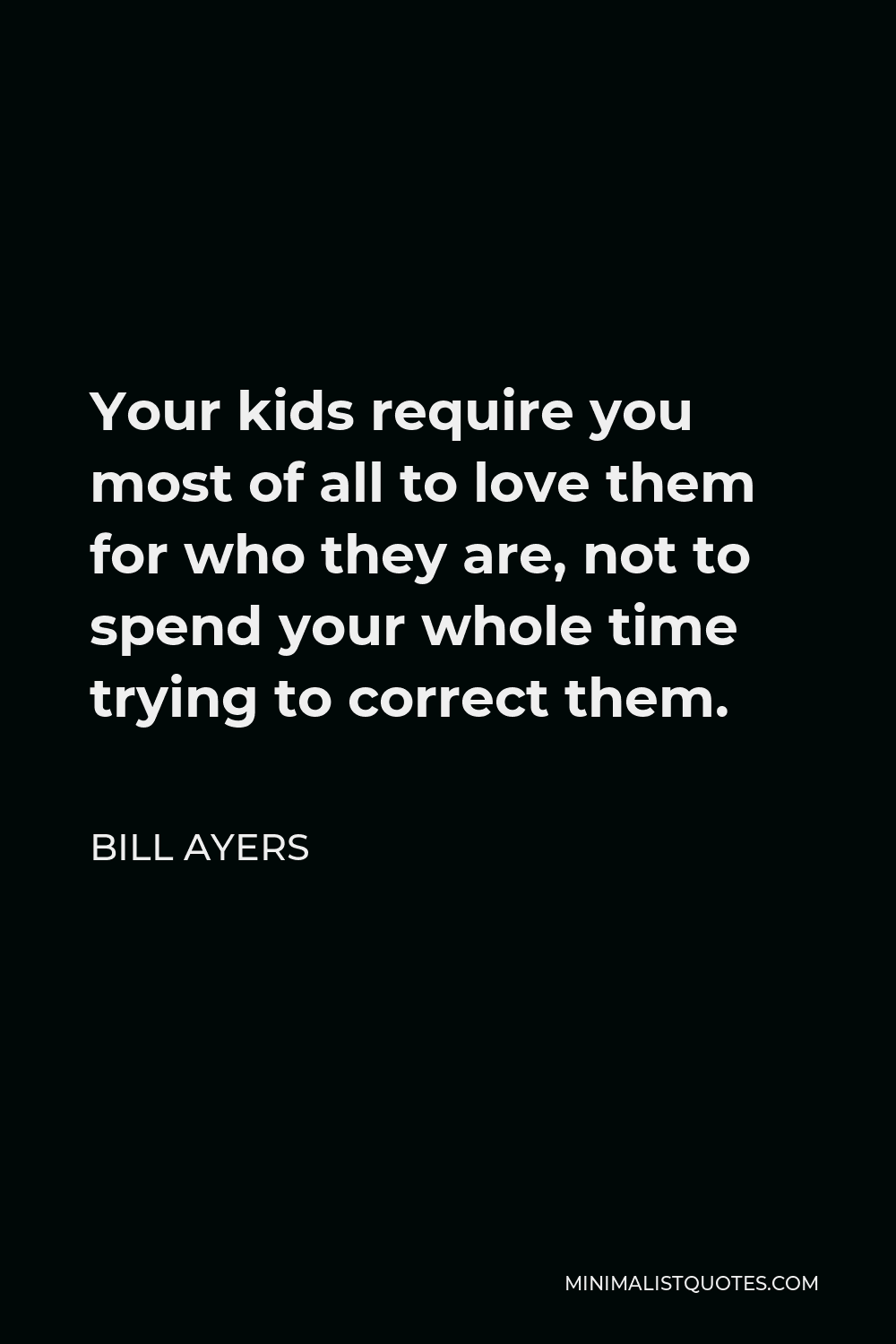
Your kids require you most of all to love them for who they are, not to spend your whole time trying to correct them.
BILL AYERS -





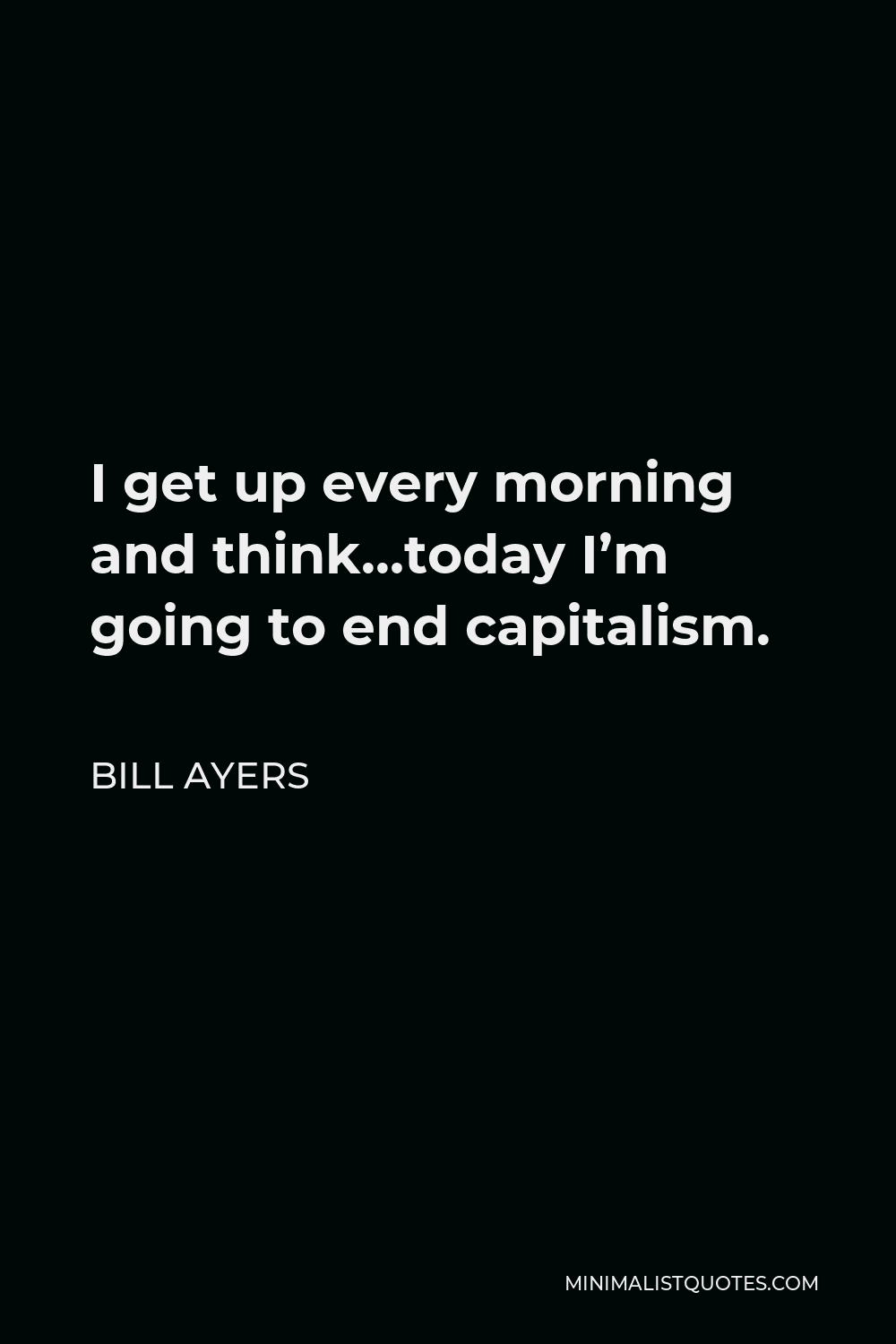
I get up every morning and think, today I’m going to make a difference. Today I’m going to end capitalism. Today I’m going to make a revolution. I go to bed every night disappointed but I’m back to work tomorrow, and that’s the only way you can do it.
BILL AYERS -





![Bill Ayers Quote - Certainly my parents were Dr. [Benjamin] Spock-driven parents. So they were tolerant.](https://minimalistquotes.com/images/certainly-my-parents-were-dr-benjamin-spock-driven.jpg)
Certainly my parents were Dr. [Benjamin] Spock-driven parents. So they were tolerant.
BILL AYERS -





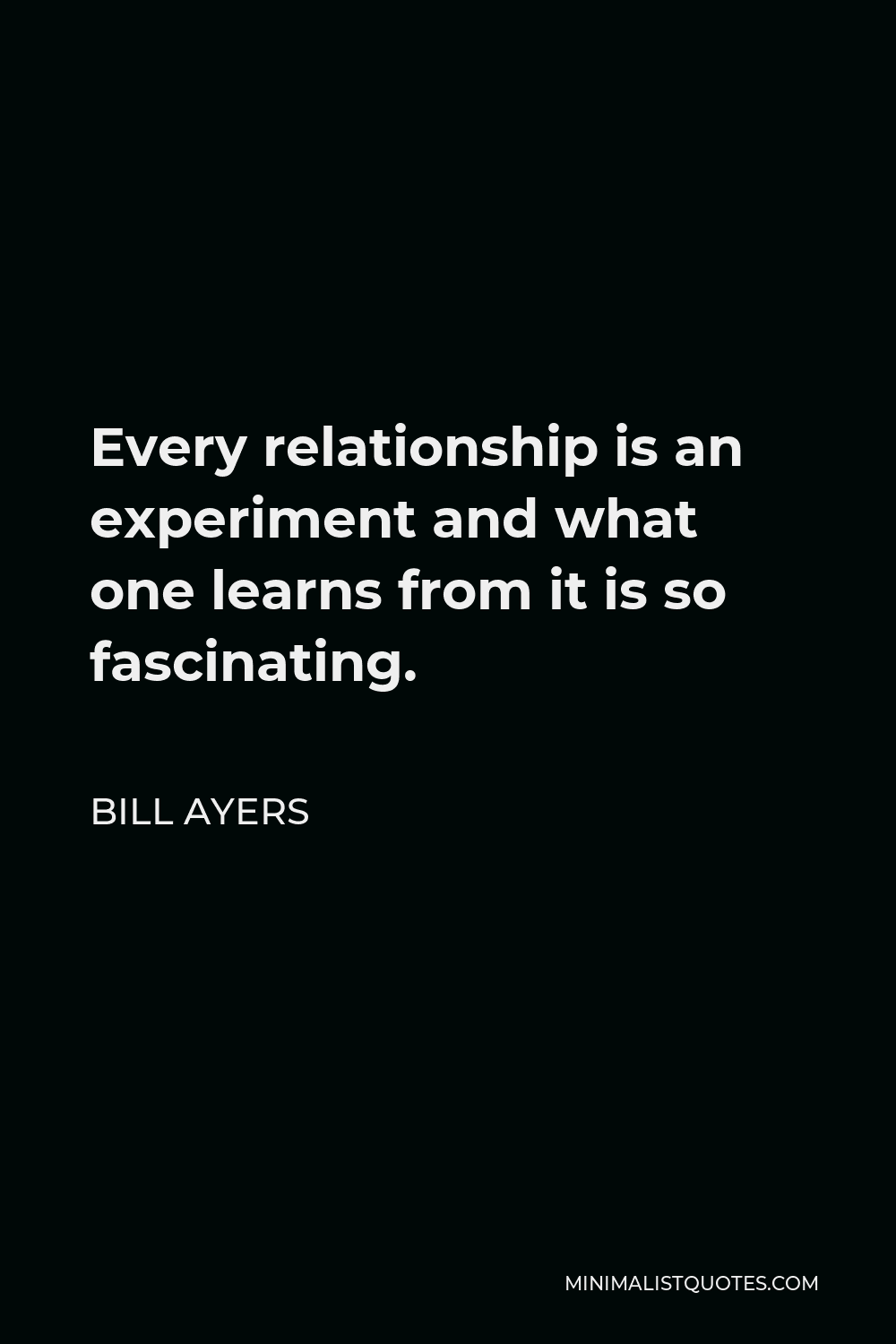
Every relationship is an experiment and what one learns from it is so fascinating.
BILL AYERS -





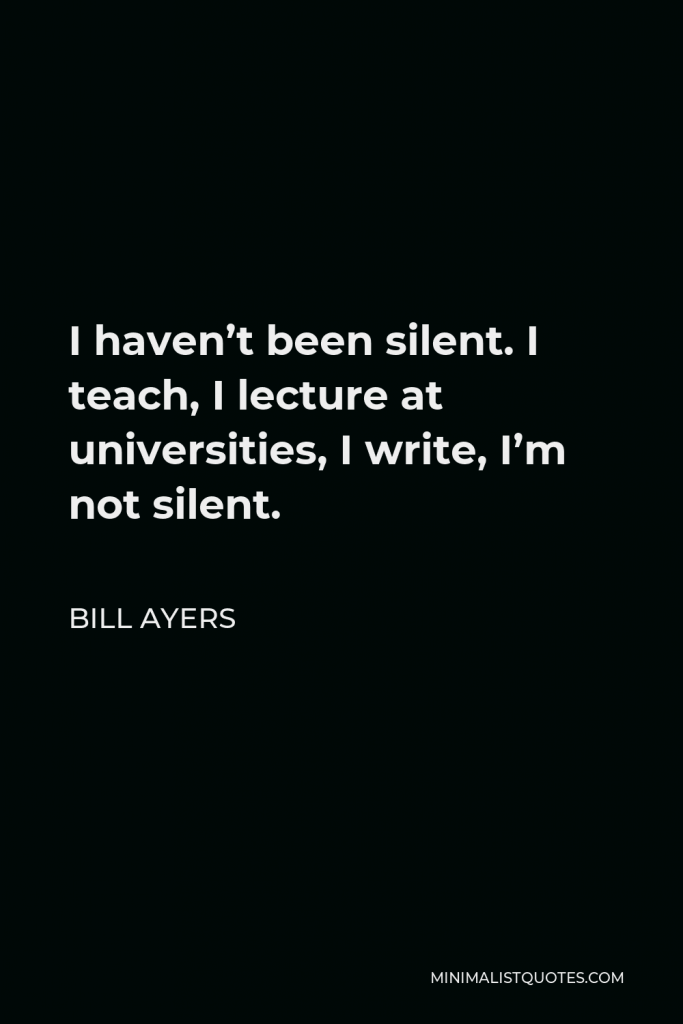

I haven’t been silent. I teach, I lecture at universities, I write, I’m not silent.
BILL AYERS -





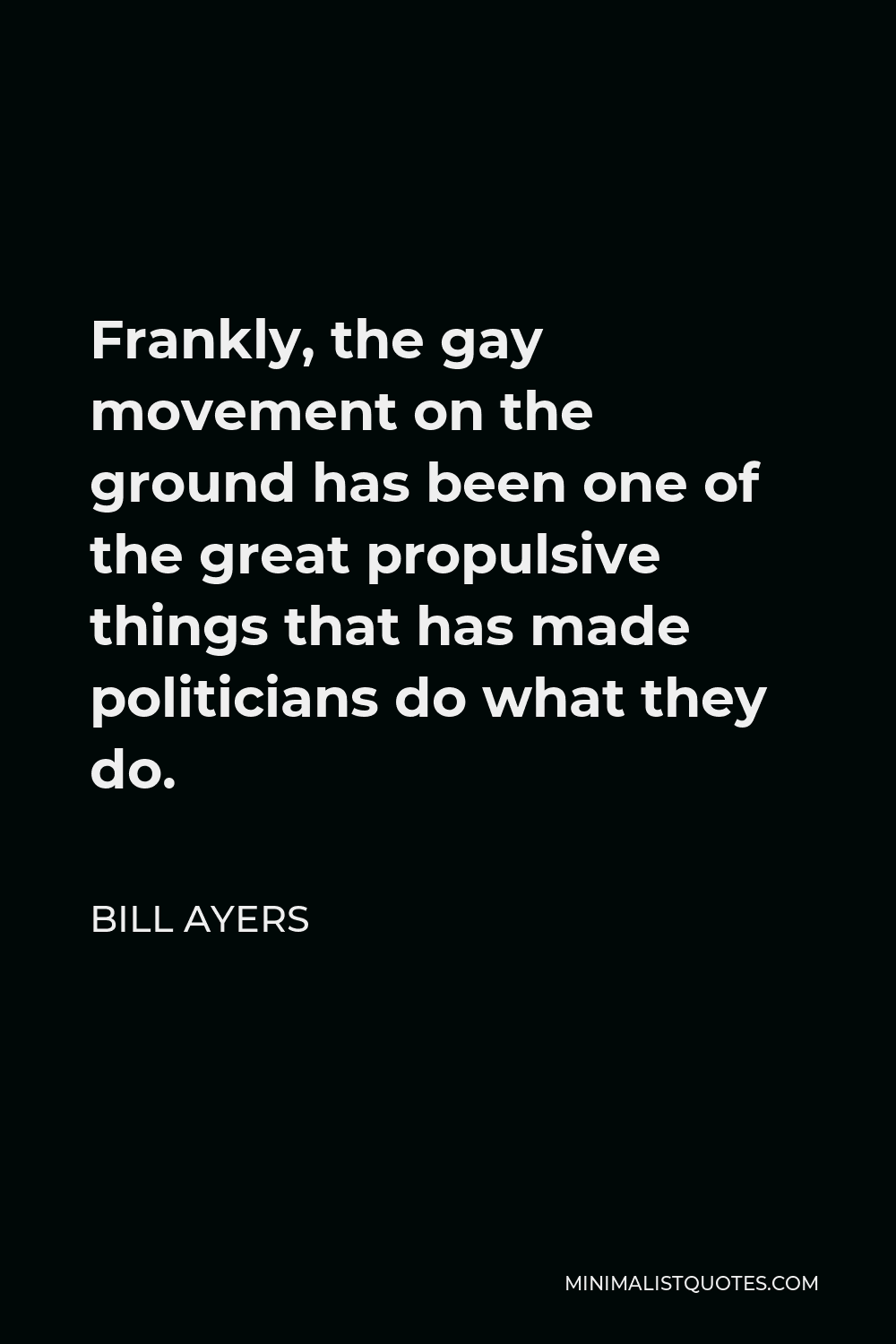
Frankly, the gay movement on the ground has been one of the great propulsive things that has made politicians do what they do.
BILL AYERS -





![Bill Ayers Quote - That’s what [Abraham] Lincoln said. “The white man will always be above the black man. I don’t want them to run for office, or have political rights, or vote. I want them to go back to Africa.”](https://minimalistquotes.com/wp-content/uploads/2023/02/thats-what-abraham-lincoln-said-the-white-man-will-683x1024.jpg)

That’s what [Abraham] Lincoln said. “The white man will always be above the black man. I don’t want them to run for office, or have political rights, or vote. I want them to go back to Africa.”
BILL AYERS -





![Bill Ayers Quote - Everyone who knew [Barack] Obama from being in Hyde Park knew he was the smartest guy in any room he walked into; a decent, compassionate, lovely person; pragmatic, middle-of-the-road and ambitious.](https://minimalistquotes.com/wp-content/uploads/2022/12/everyone-who-knew-barack-obama-from-being-in-hyde--683x1024.jpg)

Everyone who knew [Barack] Obama from being in Hyde Park knew he was the smartest guy in any room he walked into; a decent, compassionate, lovely person; pragmatic, middle-of-the-road and ambitious.
BILL AYERS
